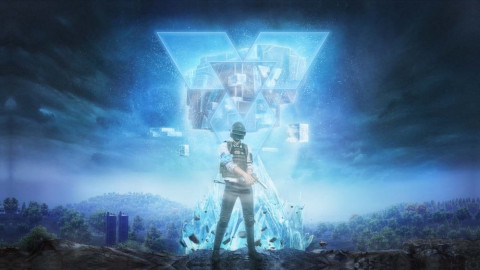
At first, it looked The International 2017 champions Team Liquid were at the mercy of Mineski in the finals to the third StarLadder i-League Invitational. The SEA super group, helmed by veteran stars Chai "Mushi" Yee Fung and Daryl Koh "iceiceice" Pei Xiang, looked strong in the first game of the finals, taking the win in convincing fashion and looking every bit the powerhouse its fans back home believed it to be.

Then came the collapse. Liquid took Game 2 in convincing fashion but Mineski fired back hard in Game 3. While it seemed to be in position to retake the series lead, Kuro "KuroKy" Salehi Takhasomi rallied back and stole the win.
That unfortunate turn rattled Mineski in a big way and that was obvious in Game 4 as Liquid took an effortless, 20-minute victory to seal up the series and the first-place finish.

It was a dominant performance befitting the status of International champions. Despite showing a hint of weakness in the first game of the finals, Liquid’s overall performance at SLi3 was beyond reproach, with a 9-1 win-loss record.
It’s a great to the season for the European elites, who already begin work on a berth to The International 2018 and take home the top prize of $135,000. Just as importantly, it cements them as the favorite to win season’s first Major event, ESL One Hamburg, which is just two weeks away.
DPC Season Standings
SLi3 wasn’t just a tournament with a $300,000 prize pool or the first big event following TI7. It was also the official beginning of the 2017-2018 Dota Pro Circuit.
The current standings are as follows:

For those that weren’t keeping up with Dota 2 news during the off-season, the Dota Pro Circuit is a series of tournaments that offer “Qualifying Points,” which will be used to determine the direct invites to The International 2018. SLi3 had 300 points on the line, which were distributed among the top-four teams.
Each Major and Minor tournament will award points and those will be added up as the season progresses. For more information on the DPC, consult the official Dota 2 blog and to keep track of the standings as the season progresses, bookmark Liquipedia’s DPC page.

The Teams That Didn’t Get Points…
The top-four from SLi3 received DPC points. The bottom-four? Well, they got nothing more than their winnings. What might raise an eyebrow, however, is who missed out on them.
Vici Gaming posted a surprisingly shaky performance. Despite looking sporting a strong on-paper roster that mixes seasoned veterans with young standouts, the Chinese squad went 0-4 in the group stages, dropping series to Mineski and, alarmingly, SG E-Sports. It will have opportunities to rebound, given how it successfully qualified for two more Minor events, but VG looked bad enough here that it needs to make a statement in its next outing.
More surprisingly, TI7 runner-up Newbee notched a shockingly poor performance in the group stages, losing 2-0 to both compLexity Gaming and Team Secret. At face value, there’s no shame in that; Secret is a world-class organization and CoL seems to have turned a corner over the last few months. Their actual performance in the game, however, makes it easy to wonder if their inability to take home the gold in Seattle may have shook the team in a lasting way.

Broadcasting Controversy
Even though SLi3 delivered quality in-game action, there was a fair bit of controversy outside the game, as StarLadder received blowback from fans for nixing third-party streams of their tournament. A handful of personalities, most notably Henrik "AdmiralBulldog" Ahnberg, were told to stop broadcasting the tournament on-air.
So what happened? And who was in the right during this dispute? Read our coverage of the dust-up and find out.

New Rules
The broadcasting controversy and introduction of the DPC weren’t the only things that happened outside the game at SLi3. There were also two interesting rules that went into effect at the tournament.
First, teams were allowed tactical pauses during the tournament. While that isn’t necessarily going to be the norm going forward, it was an interesting nuance to the event that was met with mixed (but generally negative) reactions from fans. Players, however, were largely silent on the topic and not every game had a tactical pause, with compLexity Gaming being the only team to really take full advantage.
More importantly, coaches were allowed to help their teams during the drafting phases of games. This made minimal impact to the viewer experience but seemed to hit the players as few sets were decided by one side being blatantly “out-drafted.”
There are no guarantees that this approach will last, of course. Coaches in CS:GO were given a more prominent role in games in 2016, only to have Valve reverse course on that decision. If SLi3 is any indication, however, these changes should make for deeper, more exciting series this season.
And that’s a good thing.
Sort by:
Comments :0






